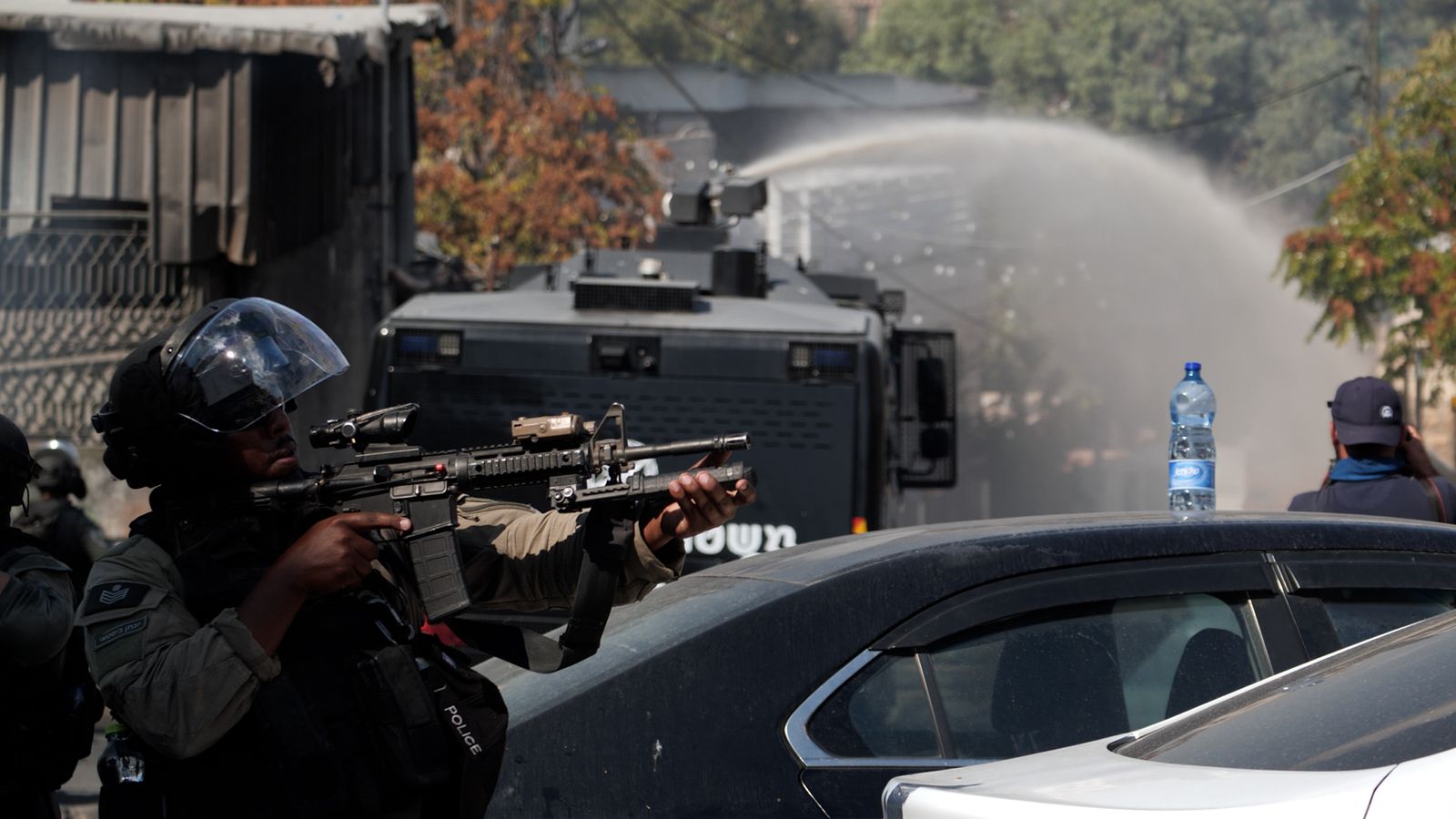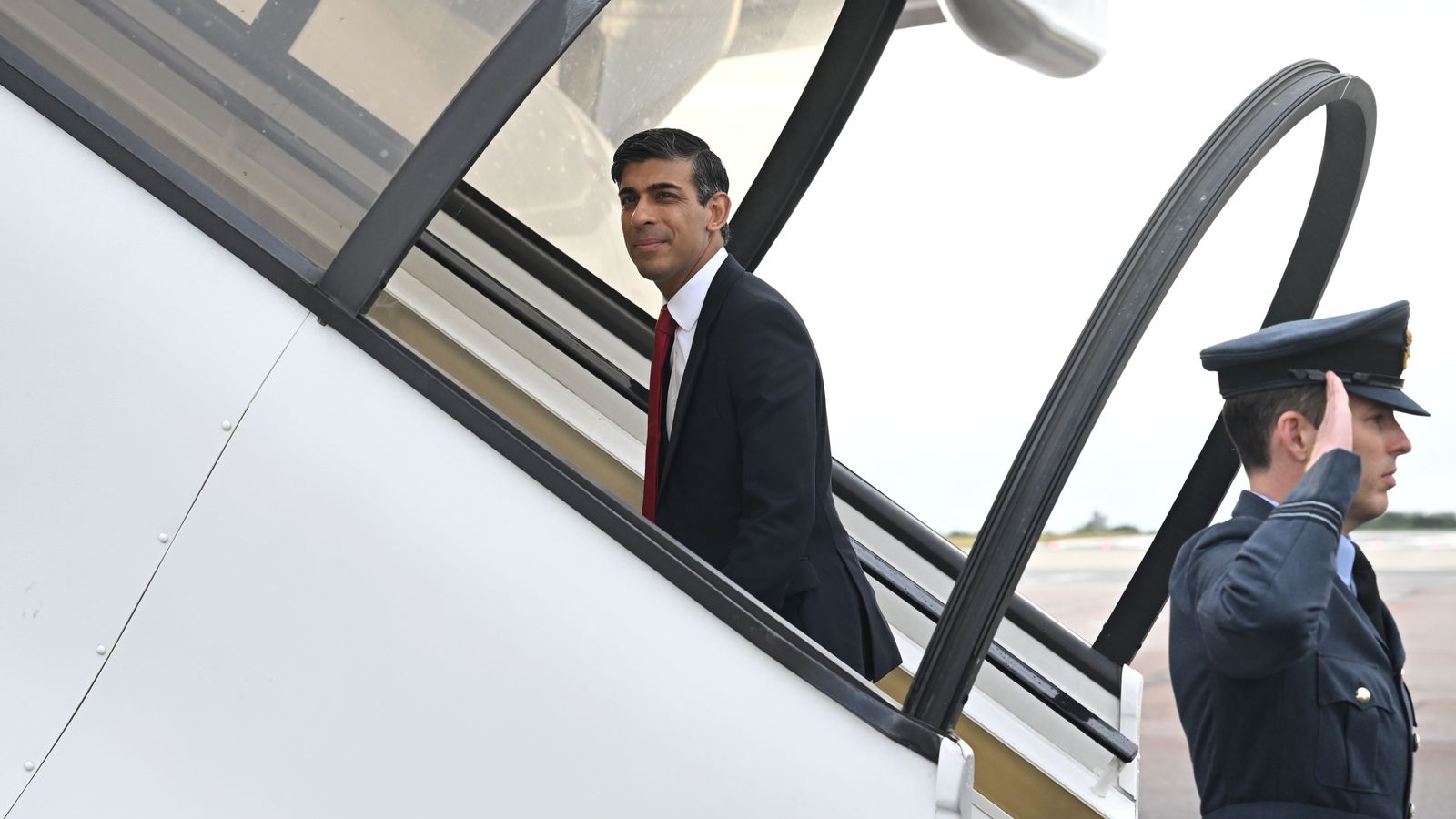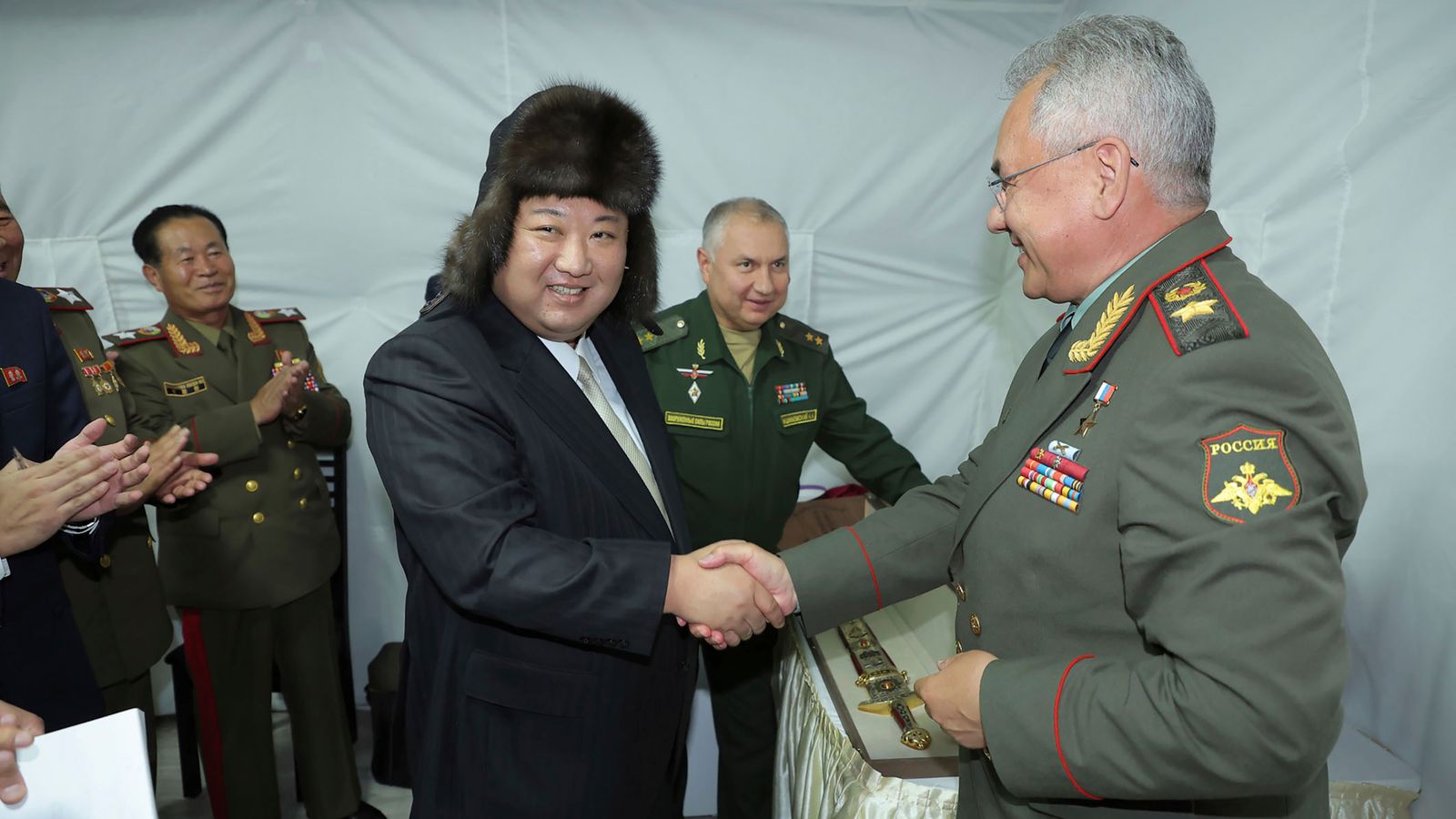We watched as young men walked towards Jerusalem’s Damascus Gate that leads into the Old City – and ultimately the al Aqsa Mosque – to attend Friday prayers.
A line of police officers told them they couldn’t go in and pushed them back up the street past coffee shops and kebab stalls.
The Israeli government had ruled that nobody under 60 years old could pray this Friday at the al Aqsa Mosque.
In reality, I saw a lot of men younger than 60 being allowed to pass, but teenagers and men in their 20s and 30s were barred.
Follow live: Gazans told ‘go south if you want to live’
Inside the ancient walls following the alleyways that lead past the 14 stations of the cross, there were more checkpoints.
While we could pass using our press IDs, the worshippers were directed to the Lion’s Gate entrance to the mosque – but again, no young men were allowed.
Small groups instead gathered in the narrow streets, preparing to pray in the open until police moved them along too.
The high security was inevitable after the events of this week, and it was guaranteed after calls for a “day of rage” by Hamas across the world.
Sure enough after prayers in Jerusalem, small groups of men outside the Old City’s walls threw stones at the security forces, who returned fire with tear gas and sprayed skunk water – a foul smelling liquid – from an armoured water cannon truck.
This was nothing exceptional though; in fact I have seen a lot worse on other “ordinary” Fridays here.
After the Hamas raid on Israel, there was an expectation here for potential for real trouble, but if anything, things felt quieter than usual.
Sky News contacts within the Palestinian communities told us there was a feeling the Israelis were in no mood for leniency.
And I suspect many thought it wasn’t worth risking their lives to make a point.
Read more:
Gaza ‘on brink of collapse’ after evacuation order
A dangerous moment in Israel-Hamas war – and the world is holding its breath
Please use Chrome browser for a more accessible video player
There is a grave concern among Palestinians over what is going to happen in the coming days.
As we left prayers and passed through the Old City, I spoke to Hamed Shalodi who told me this “big war” will mean more and more deaths of civilians.
“It’s very bad you know to see this happening between Palestinians and Israelis, fight each other and kill a lot of people from this side and that side, it’s not good,” he said.
“It’s good we live together, and the fighting, if possible, we stop it now.”








